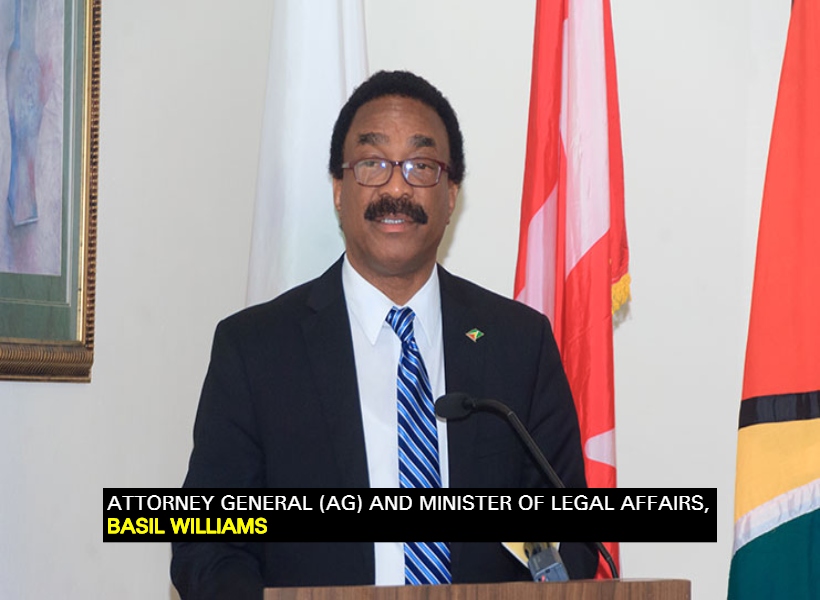Attorney-General (AG) and Minister of Legal Affairs, Basil Williams, has lauded efforts made by the Judiciary to make justice more accessible to persons, particularly those that reside in the Capital Towns. He said that Magistrates are now sitting three and four times each week. He said that this is an improvement to quarterly sittings that were being conducted prior to the intervention.
“The Judiciary has been progressive over the past few years. They have extended their reach in the hinterland region, by created Magisterial Districts in the Capital towns,” Williams said while asserting that the decision was one that the coalition introduced when it came into office in 2015.
“In those far-flung regions, those Capital Towns are enabling the citizens in those areas to better access justice in a more rapid form than before. In those Capital Towns, you have magisterial districts set up and whereas before, the magistrates sat every three months. Magistrates are sitting three [and] four times a week now in the Capital Towns,” Williams said during an interview on the Voice of Guyana (VOG)’s “Insight” programme yesterday.
Commenting on the general work of the Judiciary, Williams said that the access to justice has “improved tremendously”, owing to the several measures that were set in place post-2015, which includes the establishment of Sexual Offences Courts, training for magistrates and jurors, and the recent commissioning of the Drug Treatment Court, amongst other “specialised” courts.
The AG said that these initiatives are all part of the push to enable a “sound” judicial system. He also spoke about the benefits that can accrue from such a system.
“A sound judiciary is very important. It is important for business and for investment. You know, investors would be more inclined to come to Guyana once they know there is a sound judicial system. They will be assured that their cases will be heard quickly, and any disputes that they have will be resolved under the rule of law,” said Williams.
The AG said too, that strengthening the financial independence of the Judiciary was also instrumental in the branch’s progress.
“[We] strengthened the standing of the Judiciary, when we enabled them to have their own financial system; in the sense that we gave them financial independence. And so, they determine their priorities and they establish the extent to which their budget should be. That is not directed by any outside force, or person,” Williams said.











